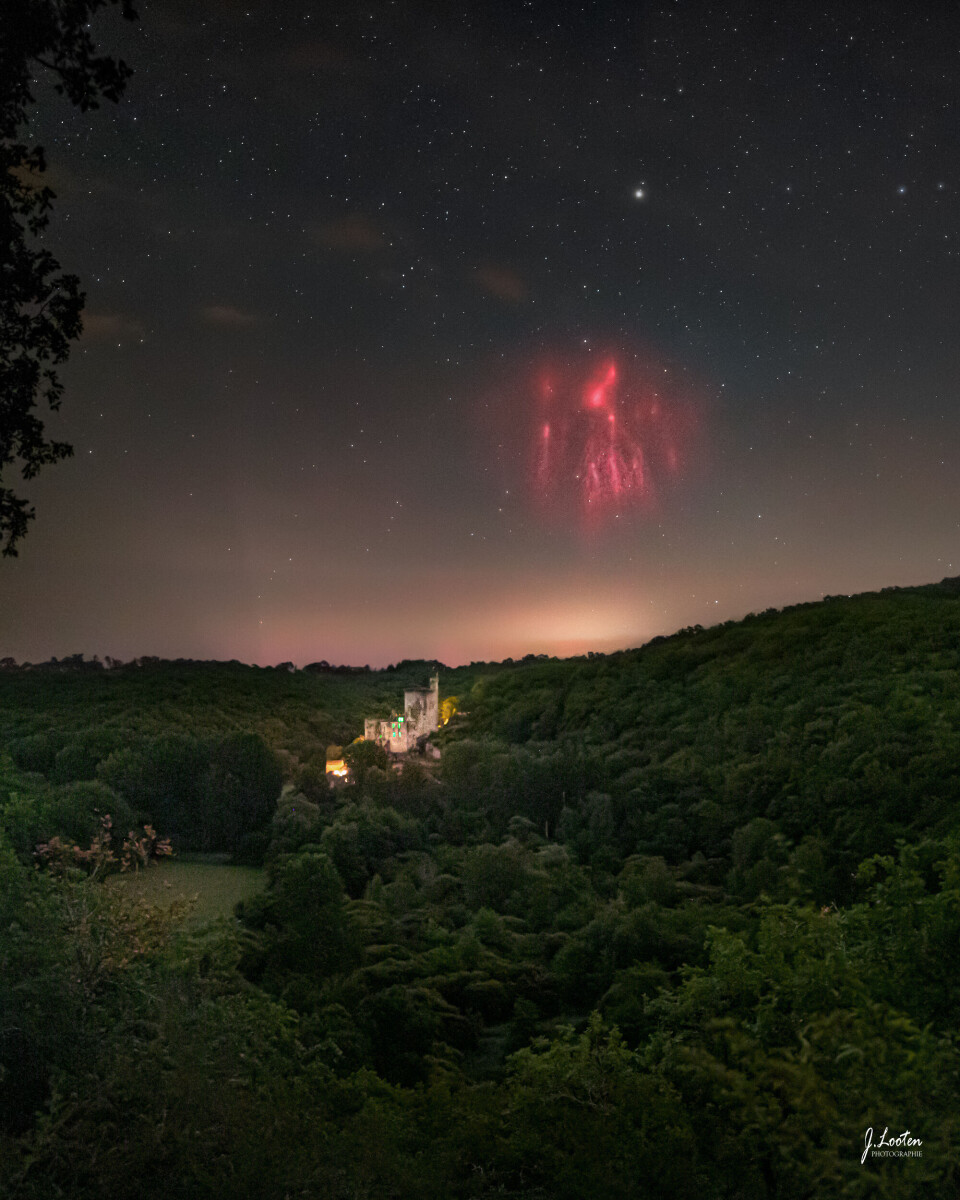-
Online ‘anti-waste’ supermarket offers deals on everyday items in France - we test it
Discounts of 10% to 50% available on brand products
-
The curious case of Good Friday: Why only some parts of France get the day off
Three French departments benefit from two extra public holidays
-
How long does it take to sell property in different areas of France? New study
Many major cities are showing signs of recovery when it comes to supply, demand, prices, and time to sell
Photographer captures rare red sprite lightning near Dordogne chateau
This type of red lightning was only formally identified in 1886 and photographed for the first time in 1989

A keen photographer managed to capture pictures of beautiful and incredibly rare ‘red sprite’ lightning in the Dordogne, in the early hours of Friday morning (July 28)
Red sprite lightning was only formally identified in 1886 and photographed for the first time in 1989.
It takes the form of ethereal, vertical red lights and flashes, high in the sky, usually associated with thunderstorms lower down in the atmosphere.
Julien Looten, 23, from Arras in the Pas-de-Calais department in the North of France, drove to the Dordogne to take place in an Les Soirées Étoilées evening at the Château de Losse, dedicated to talks about night photography, especially photographing the moon.
The evening included dinner eaten under the stars, and during this Mr Looten started seeing distant flashes of lightning from a storm in the Perpignan region, around 300km to the south-east.
Read more: Space: Mysterious ‘streak’ of light seen in night sky over France
“Then suddenly while I was looking up I saw a red sprite and wished I had my camera ready. It was the first time I had seen one, although I had read about them,” Mr Looten told The Connexion.
“I spent the next hour photographing the sky, but without success. However, as the evening was coming to a close, a friend who also photographs the night skies messaged to say ‘things are happening in the Dordogne sky,’ and said he was going to set up near Château de Commarque, not far from where I was.
“It was around 1:00 when I joined him. I set up my equipment to take bursts of photographs, with long exposure times of one or two seconds and started photographing.
“It was very spectacular, but because I was concentrating on the equipment, I did not actually see the red sprite that time – only when I looked back to see what I had captured.
And sadly my friend, Maxime Villaeys, missed it by a millisecond!”
Scientists who have seen the photo say it is one of the first red sprites they have seen with that particular form, and have called it a “jelly flash” because its shape is similar to that of a jellyfish.
Read more: Amateur photographer’s shot of Dordogne skies sparks NASA interest
During the evening Mr Looten and Mr Villaeys did catch other red sprites but they were less intense than the jelly flash.
Mr Looten, who works as an archeologist, says he finds the Dordogne a “special place” because of the heritage stretching back to the early cave dwelling humans, and because it is possible to find areas with relatively little light pollution to watch the night skies.
His interest in photographing the stars came from his father, who was an astronomer, and who gave him his first telescope.
Around six years ago he started photographing the skies as a way to share his observations but also to develop them as art.
In February this year his photos of another rare event, an ‘airglow’ also taken in Dordogne, this time at Château de Losse, went viral on social networks and he was contacted by scientists from Nasa who wanted to find out the conditions which led to the event.
Mr Looten’s photographs are available to buy.
For sky lovers tonight (August 1 to August 2) is one of four times this year to see a so-called ‘supermoon’. The moon will appear 14% larger and 30% brighter in the night sky as its orbit brings it closer to Earth. The moon will be closest to Earth at 8:30pm, but the best time to see it will most likely be around 10pm.
Related articles
Spectacular drone shows replace fireworks for France’s fête nationale
Woman struck by 'meteorite' as she sat on her terrace
Northern Lights captured in spectacular photos above France
























